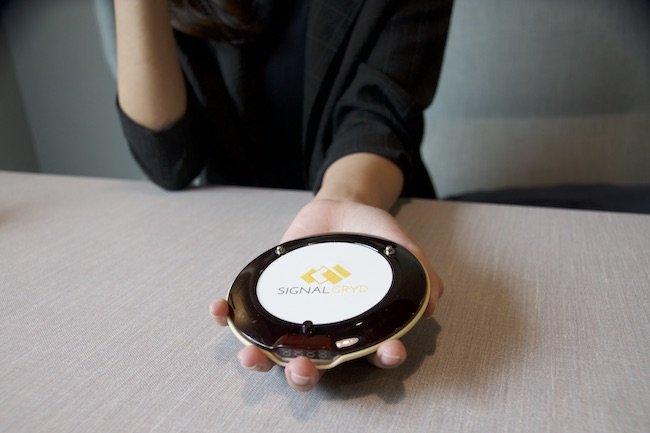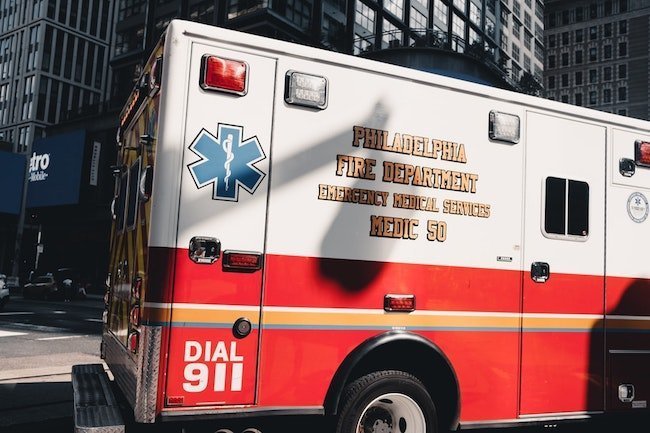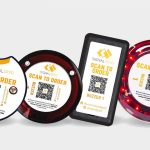
Pagers are normally synonymous with the late 20th century. This is no surprise as the 2000s has paved the way for highly efficient mobile devices. However, pagers are still being used across various industries all over the world today. These industries include food and beverage, healthcare, and even the fire department. You may not realise it, but you probably would already have encountered pagers in your life countless times.
Have you ever been in town and decided to buy a cup of bubble tea from Koi or Gong Cha to quench your thirst? Upon payment, you’d have gotten a receipt with your queue number on it. Once this number flashes on a display panel hung from the store’s ceiling, you’d know that your order can be collected. The transmitter used here is a keypad, which is used by staff to alert customers to collect their orders through a pager – which in this case a receiving display panel.
This is one of many examples of pagers used in the world today. These wireless paging systems are prominent in the food and beverage industry, and unbeknownst to some, even in healthcare and fire departments. But will they last?
Food and Beverage

The use of pagers, or buzzers as more commonly known, is popular in food and beverage establishments as they save time on the part of the service staff and encourage self-service by the patrons. Instead of having to serve orders to customers, waiters can instead spend their time on more demanding tasks.
Another form of pagers that is also used in eateries is service request buttons. This is another efficient method of serving customers as the service staff will be alerted to attend to them when required. Click on the corresponding links for more information on SIGNALGRYD’s customer paging systems, service request systems, and queue management systems.
With paging systems so frequently used in the food and beverage industry, it seems that they will be staying with us for a long time.
Healthcare

Earlier this year, it was announced that the National Health Service in the United Kingdom, also known as NHS, is being forced to end their use of pagers by 2021. These pagers will be replaced by an app called Medic Bleep. This app allows staff to communicate with each other and is available on mobile devices and desktop computers. Apart from saving time, it also has enhanced security.
How it works:
- Staff call an automated phone line or an operator to send a message.
- The receiver’s pager will beep and display the message or a number to call.
- The receiver is required to use a mobile phone or a landline to call back.
The NHS still uses pagers as it is especially useful during emergencies, when quick and immediate communication is necessary. It does not require the use of Wi-Fi as it uses its own set of frequencies, ensuring that coverage is extensive and messages are promptly delivered.
With the imminent departure of the paging system and its subsequent replacement with Medic Bleep, there are several concerns. For example, mobile phones can serve as a form of interference. Mobile networks can also be slow at times and Wi-Fi coverage can be uneven throughout the hospital. Moreover, the staff can encounter delays and message back-logs on messaging services.
As pagers usually provide a one-way communication and is relatively expensive, it is easy to understand why it will be phased out. However, only time will tell whether Medic Bleep is more effective – though unlikely, pagers may possibly make a comeback.
Fire Department

Similar to the NHS, pagers are important to the fire departments in Western Newfoundland, Canada during emergencies. Or they used to be. As of July this year, Canadian communications company Bell Aliant is no longer providing paging services in certain areas of Canada. These pagers are necessary for volunteer firefighters in the Lark Harbour area for two reasons: it is beyond the range of coverage and it is almost an hour’s drive from the nearest hospital or police station. As pagers operate through radio frequency and do not require cell service to function, they can be used to notify volunteer firefighters immediately when there is an emergency.
Although a mobile radio was implemented in place of Bell Aliant’s service, its frequencies only reach a limited radius, whereas Bell Aliant’s covered the entire island. As a result, calls are reported to have been missed. This is especially worrying given the nature of the fire department – any delay can potentially lead to the loss of lives.
The End?
While pagers are becoming increasingly common in the food and beverage industry, the healthcare and fire departments are looking at a decline and a possible end to the use of pagers.
Though some may argue that pagers are also useful, more popular, and create efficiency in eateries, hospitals and fire departments require them for more pressing reasons. Nonetheless, the advancements of technology may produce something that is on par with what pagers can offer, and we can only hope for the best.






